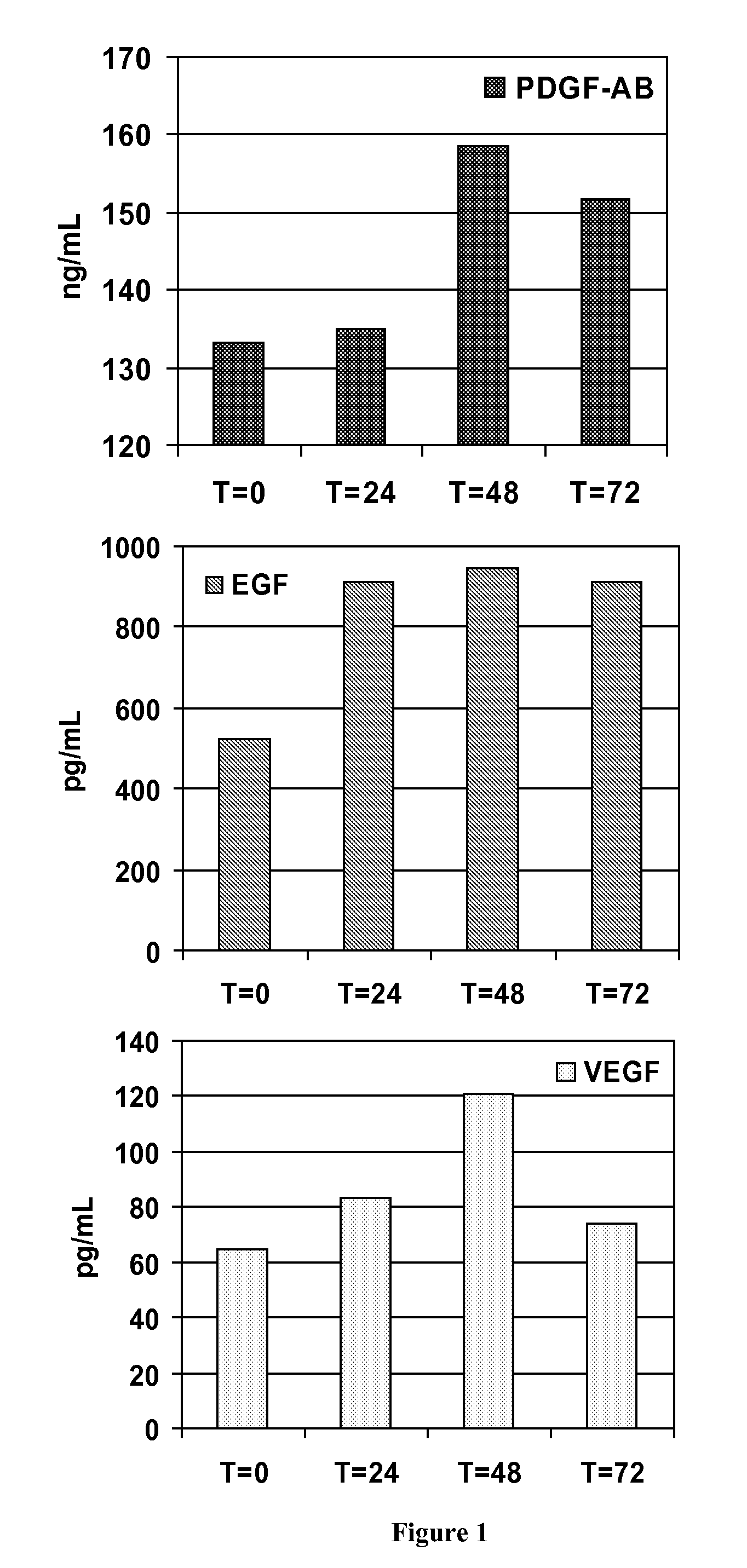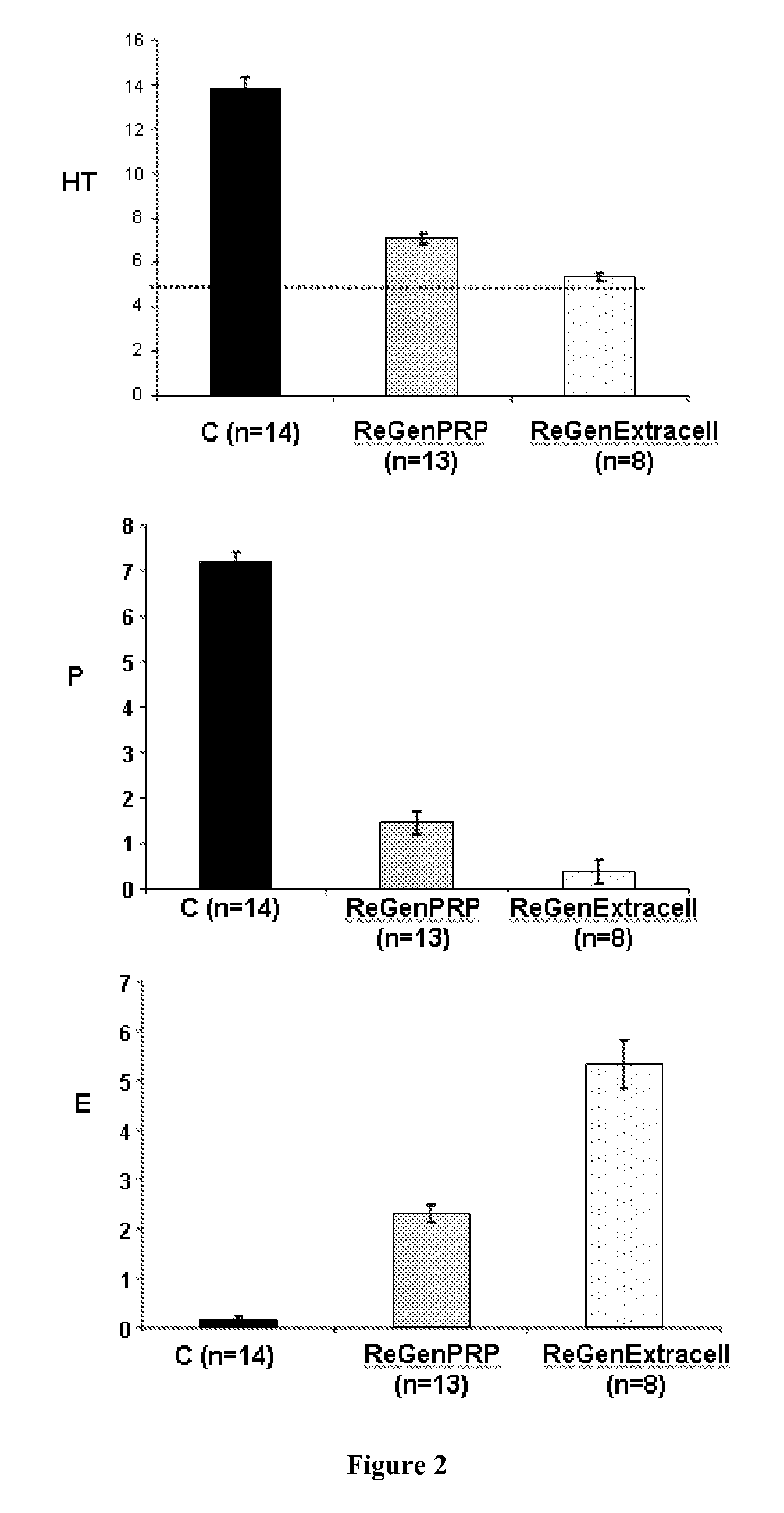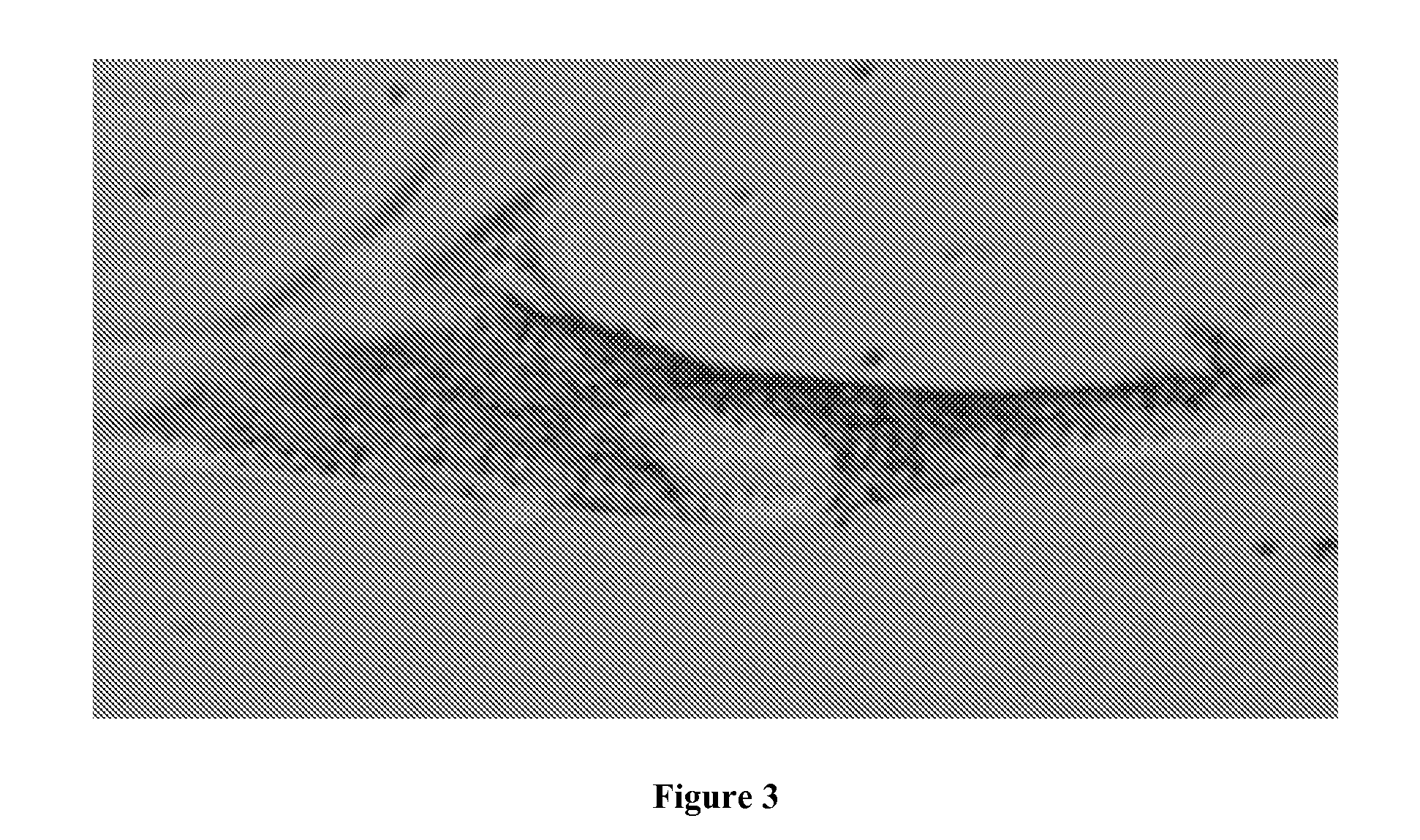Cell Preparations for Extemporaneous Use, Useful for Healing and Rejuvenation In Vivo
a cell preparation and extemporaneous technology, applied in the field of tissue regeneration, can solve the problems of poor platelet and other plasma components yield, prohibitive cost, and yield of 61%
- Summary
- Abstract
- Description
- Claims
- Application Information
AI Technical Summary
Benefits of technology
Problems solved by technology
Method used
Image
Examples
example 1
Preparation of an Autologous Platelet Concentrate
[0203]Separator tubes of the invention are beforehand tested for the good tolerability, the non-toxicity and the non-mutagenicity of the thixotropic gel according to norms ISO 10993-11, ISO 10993-10, ISO 10993-12 and ISO 10993-3.
[0204]About 8.5 to about 10-mL of human blood sample are collected within the separator tube of the invention, where the blood is aspirated by the vacuum. The mixture is then centrifuged at approximately 3,800 rpm for about 3.5 min. The platelet-rich plasma is then collected.
[0205]The analysis of the platelet concentrate obtained by the method of the invention has shown that it contains 2 to 4 times the normal levels of platelets and growth factors, compared to a natural blood clot, while maintaining normal levels of fibrin and fibrinogen and containing practically no blood cells (<1% hematocrit, compared to 35-50% in a normal blood clot and 15-20% in platelet-rich plasma obtained from known methods of prepara...
example 2
Therapeutic Use of the Autologous Platelet Concentrate of the Invention
a) Patients:
[0213]Three patients presenting chronic unhealing wounds are selected:[0214]One 88-year-old patient (Patient 1) suffering from multiple locations Kaposi's angiosarcoma on lower limbs and from a radio-induced necrosis on the left leg. The radio-induced necrosis was resulting from radiotherapy treatment. After 12 months after the end of the low-voltage X-ray treatment, the necrosis was consisting in a deep superinfected ulcer surrounded by a scab (35×25 mm). The wound had been previously unsuccessfully treated with various treatments such as with steroids and healing creams.[0215]One 81-year-old patient (Patient 2) suffering from a vertex spinocellular carcinoma was presenting a cutaneous ulceration (about 10 mm diameter) with peripheral dyskeratosis without any infection sign resulting from a biopsy-resection and a post-surgical radiotherapy (total dose of 52 Gy).[0216]One 60-year-old patient (Patient ...
example 3
Therapeutic Use of the Autologous Platelet Concentrate of the Invention in Combination with an Autologous Thrombin Enriched Serum
[0221]To activate coagulation, an alternative to the mixture of the platelet concentrate of the invention with a thrombin activator before the use on a patient, as described in Example 1, is the combination of the platelet concentrate of the invention with a fibrinogen activator such as a thrombin enriched composition and preferably with a thrombin serum (e.g. autologous) according to the invention.
a) Preparation of an Autologous Thrombin Serum (ATS)
[0222]An autologous thrombin serum to be used as a thrombin enriched preparation in the context of the invention is prepared by a process which comprises the addition to a patient's whole blood sample (e.g. 8 mL) collected in a separator tube of the invention as described in Example 1, a 95% v. ethanol solution (e.g. 1 mL) and calcium chloride 10% (e.g. 1 mL). The mixture (also called RegenATS™ from Regen Lab, ...
PUM
| Property | Measurement | Unit |
|---|---|---|
| Mass | aaaaa | aaaaa |
| Mass | aaaaa | aaaaa |
| Molar density | aaaaa | aaaaa |
Abstract
Description
Claims
Application Information
 Login to View More
Login to View More - R&D
- Intellectual Property
- Life Sciences
- Materials
- Tech Scout
- Unparalleled Data Quality
- Higher Quality Content
- 60% Fewer Hallucinations
Browse by: Latest US Patents, China's latest patents, Technical Efficacy Thesaurus, Application Domain, Technology Topic, Popular Technical Reports.
© 2025 PatSnap. All rights reserved.Legal|Privacy policy|Modern Slavery Act Transparency Statement|Sitemap|About US| Contact US: help@patsnap.com



